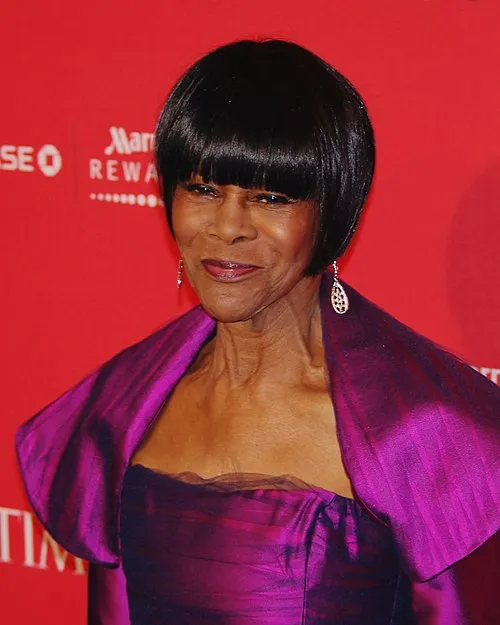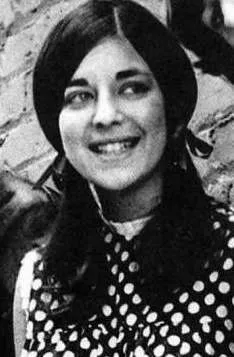2023 – Outrage ignites as protests erupt following the brutal police beating and fatality of Tyre Nichols. Join the movement for justice and reform.
On January 28
5
Important Days
52
Important Events
309
Births and Deaths
recorded.
Holidays and Occasions
Events
Births and Deaths

Army Day in Armenia: A Tribute to the Nation's Warriors
Army Day, known as Ա Arme, is a significant national holiday in Armenia that takes place on January 28th each year. This day is dedicated to honoring the Armenian Armed Forces and celebrating the courage and dedication of the men and women who protect the nation's sovereignty...

Data Privacy Day: Understanding Its Importance and How to Protect Yourself
Every year on January 28, Data Privacy Day is observed around the world to raise awareness about the importance of protecting personal information. In a rapidly evolving digital landscape, understanding data privacy has never been more crucial...

Joseph Freinademetz: The Pioneer Missionary to China
Joseph Freinademetz, an Austrian missionary, dedicated his life to spreading Christianity in China during a time of significant cultural change. Born on April 15, 1852, in the Tyrol region of Austria, Freinademetz's passion for missionary work steered him away from a traditional path, leading him to join the Society of the Divine Word (SVD)...

Discovering Julian of Cuenca: Life, Miracles, and Legacy
Julian of Cuenca, also known as Julián de Cuenca, is a revered figure in the Christian tradition, especially in Spain. Born in the 12th century in Cuenca, he is remembered not only as a saint but also as a key figure in the development of monastic and ascetic practices in medieval Spain...

The Life and Legacy of Thomas Aquinas: A Philosopher of Faith and Reason
Thomas Aquinas, a pivotal figure in medieval philosophy and theology, was born in 1225 in the Kingdom of Sicily. His profound impact on the development of Western thought continues to resonate in contemporary philosophical and theological discussions...
In 2021, a tragic nitrogen leak at a poultry food processing facility in Gainesville, Georgia, resulted in the deaths of six individuals and left at least ten others injured. This incident highlights the serious safety concerns that can arise in industrial environments.
In 2006, a tragic incident occurred at the Katowice International Fair in Poland when the roof of one of its buildings collapsed under the heavy weight of snowfall. This catastrophic event claimed the lives of 65 individuals and left over 170 others injured, marking a significant moment in the region's safety history.
In 2002, TAME Flight 120, operated by a Boeing 727-100, tragically crashed in the Andes mountains of southern Colombia, resulting in the loss of 94 lives. This devastating incident highlights the dangers of aviation in challenging terrains.
In 1988, the Supreme Court of Canada made a landmark decision in R v Morgentaler, declaring all anti-abortion laws unconstitutional. This pivotal ruling transformed abortion rights in Canada, establishing a precedent for reproductive freedom.
In 1986, the Space Shuttle program faced a tragic event during the STS-51-L mission when the Space Shuttle Challenger disintegrated shortly after liftoff, resulting in the loss of all seven astronauts aboard. This incident marked a significant moment in space exploration history.
In 1985, the renowned supergroup USA for Africa (United Support of Artists for Africa) released the iconic hit single "We Are the World," aimed at raising crucial funds for Ethiopian famine relief efforts. This landmark collaboration united top artists to inspire global support and awareness for humanitarian aid in Africa.
In 1984, Tropical Storm Domoina struck southern Mozambique, resulting in devastating flooding and tragically claiming 214 lives. This severe weather event remains one of the worst recorded floods in the region's history.
In 1982, US Army General James L. Dozier was heroically rescued by Italian anti-terrorism forces from the clutches of the Red Brigades, showcasing a pivotal moment in the fight against terrorism.
In 1981, President Ronald Reagan eliminated the last domestic petroleum price and allocation controls in the United States, effectively bringing an end to the 1979 energy crisis and initiating the oil glut of the 1980s. This pivotal decision marked a significant shift in U.S. energy policy and market dynamics.
In 1980, the USCGC Blackthorn tragically collided with the tanker Capricorn while departing from Tampa, Florida. This catastrophic accident led to the capsizing of the Coast Guard vessel, resulting in the deaths of 23 brave crewmembers. Explore the details surrounding this significant maritime disaster and its impact on maritime safety.
Experience the historic Great Lakes Blizzard of 1977, which unleashed an astonishing 3 meters (10 feet) of snow in just one day across Upstate New York. The cities of Buffalo, Syracuse, Watertown, and neighboring areas faced the brunt of this monumental storm, leaving a lasting impact on the region. Discover the dramatic weather event that reshaped winter in New York.
In 1965, the modern design of the Canadian Flag was officially selected by an act of Parliament, marking a significant moment in Canada’s national identity.
In 1964, a United States Air Force T-39 Sabreliner, conducting a training mission, was shot down over Erfurt, East Germany, by a Soviet MiG-19 fighter jet. This incident highlights the tensions of the Cold War era and the risks faced by military aircraft during reconnaissance operations.
In 1960, the National Football League revealed plans for expansion teams, introducing a new franchise in Dallas for the 1960 NFL season and another in Minneapolis-St. Paul set to debut in the 1961 NFL season.
In 1958, The Lego Company secured a patent for its iconic Lego brick design, ensuring compatibility with bricks manufactured even today. Discover how this groundbreaking innovation has shaped generations of creativity and play!
In 1956, Elvis Presley made his historic debut on national television, captivating audiences and marking a pivotal moment in music history. Experience the magic of Elvis's first performance that launched him into superstardom.
1945 – World War II: Essential supplies start flowing to the Republic of China via the newly reopened Burma Road, marking a significant turn in wartime logistics and support.
1941 – Franco-Thai War: The climactic air battle marks the conclusion of the conflict. Later in the day, an armistice mediated by Japan is implemented, bringing a pivotal resolution to hostilities.
In 1938, Rudolf Caracciola shattered the World Land Speed Record on a public road, achieving an incredible speed of 432.7 kilometers per hour (268.9 mph) in the iconic Mercedes-Benz W125 Rekordwagen. Discover the thrilling history of land speed records and this legendary feat in automotive racing.
In 1935, Iceland made history as the first Western nation to legalize therapeutic abortion, paving the way for reproductive rights and healthcare advancements. Discover how this landmark decision impacted women's health and choices.
In 1933, Choudhry Rahmat Ali Khan coined the name "Pakistan," which gained acceptance among Indian Muslims. This pivotal moment fueled the Pakistan Movement, as supporters rallied for independence and the establishment of a separate nation. Discover the historical significance of this name in the fight for freedom.
In 1932, Japanese military forces launched an attack on Shanghai, marking a pivotal event in history. Discover the significance of this conflict and its impact on Sino-Japanese relations.
"Discover the tragic events of the 1922 Knickerbocker Storm, Washington, D.C.'s largest snowfall that led to a catastrophic disaster. When the roof of the Knickerbocker Theatre gave way under the weight of the snow, over 100 lives were lost, marking a dark chapter in the city’s history."
"1920 - The Establishment of the Spanish Legion: A pivotal moment in military history that marked the formation of one of Spain's most renowned military units."
In 1919, Baron Gustaf Mannerheim founded the Order of the White Rose of Finland, serving as the regent of the Kingdom of Finland. This prestigious order symbolizes honor and recognition within Finnish history, reflecting Mannerheim's significant role in shaping the nation.
In 1918 during the Finnish Civil War, the Red Guard rebels took control of Helsinki, the capital of Finland, prompting members of the Finnish Senate to go into hiding. Discover the pivotal events of this historical conflict and its impact on Finland's sovereignty.
In 1916, Manitoba became the first Canadian province to grant women the right to vote and run for office in provincial elections, paving the way for women's suffrage in Canada. However, it is important to note that this milestone initially excluded women of Indigenous and Asian heritage, highlighting ongoing disparities in voting rights.
In 1915, the U.S. Congress officially established the United States Coast Guard as a key branch of the United States Armed Forces. This pivotal act marked the inception of a vital maritime service dedicated to ensuring the safety and security of U.S. waters.
In 1909, United States troops withdrew from Cuba, concluding their military presence established during the Spanish-American War, while maintaining a strategic foothold at Guantanamo Bay Naval Base.
In 1908, members of the Portuguese Republican Party launched an unsuccessful coup d'état against Prime Minister João Franco's administrative dictatorship. This pivotal moment in Portuguese history highlights the political unrest and challenges faced during Franco's regime.
In 1902, the Carnegie Institution of Washington was established in Washington, D.C., thanks to a generous $10 million donation from philanthropist Andrew Carnegie.
In 1896, Walter Arnold from East Peckham, Kent, made history as the first person ever convicted of speeding. Fined one shilling plus costs, Arnold was caught driving at 8 mph (13 km/h), significantly surpassing the then speed limit of 2 mph (3.2 km/h). This landmark case highlights the early days of road safety regulations and the evolution of traffic laws.
In 1878, the Yale Daily News made history as the first independent daily college newspaper in the United States, setting a precedent for student journalism across the nation.
1871 – The Franco-Prussian War concludes with the Siege of Paris, resulting in a decisive French defeat and the establishment of an armistice.
In 1855, the Panama Canal Railway made history as the first locomotive journeyed between the Atlantic Ocean and the Pacific Ocean. This groundbreaking event marked a significant milestone in transportation and engineering, showcasing the innovative efforts behind the Panama Canal's construction. Discover the impact of this iconic railway in connecting two major oceans.
In 1851, Northwestern University made history as the first university in Illinois to receive its charter. This landmark achievement marked a significant milestone in the state's educational landscape.
In 1846, British troops led by Sir Harry Smith achieved a decisive victory at the Battle of Aliwal in India. This historic conflict significantly impacted British military strategy in the region.
In 1813, Jane Austen's iconic novel Pride and Prejudice was first released in the United Kingdom, marking a significant moment in literary history. Discover the timeless romance and social commentary that has captivated readers for generations.
In 1754, Sir Horace Walpole famously coined the term "serendipity" in a letter to a friend, marking the origin of this intriguing concept. Discover the story behind the word and its significance in modern language and culture.
In 1724, Peter the Great established the Russian Academy of Sciences in St. Petersburg, Russia, through a Senate decree. Initially known as the St. Petersburg Academy of Sciences, it retained this name until 1917, marking a significant milestone in the nation’s commitment to scientific advancement.
In 1671, the original city of Panama, established in 1519, was ravaged by a devastating fire during an attack by privateer Henry Morgan. This historic event led to the destruction of the city, leaving behind the ruins of Panama Viejo, a site that still bears witness to its rich and tumultuous past. Explore the remnants of this once-thriving city and its significance in Panama's history.
In 1624, Sir Thomas Warner established the first British colony in the Caribbean on the beautiful island of Saint Kitts, marking a significant moment in colonial history. Discover the rich heritage and cultural significance of this historic event.
In 1591, Agnes Sampson was executed in Edinburgh after being accused of witchcraft, marking a significant moment in Scotland's history of witch trials.
In 1573, the Articles of the Warsaw Confederation were signed, marking a significant milestone in Polish history by establishing freedom of religion. This pivotal agreement laid the groundwork for religious tolerance in Poland, setting a precedent for coexistence among diverse faiths.
In 1568, the Edict of Torda was enacted in Eastern Hungary under John Sigismund Zápolya, marking a significant milestone in religious tolerance by prohibiting the persecution of individuals based on their faith. This historic decree paved the way for greater religious freedom in the region, establishing a precedent for coexistence among diverse beliefs.
In 1547, Edward VI, the nine-year-old son of King Henry VIII, ascended to the throne of England following his father's death. This pivotal moment marked the beginning of a significant era in English history.
Discover the historical significance of the Diet of Worms, which commenced in 1521 and continued until May 25. This pivotal assembly played a crucial role in the Reformation and shaped the course of European history.
1077 – Walk to Canossa: Experience the transformative moment when Henry IV, Holy Roman Emperor, seeks redemption and has his excommunication lifted after humbling himself before Pope Gregory VII in the historic town of Canossa, Italy. Discover the significance of this pivotal event in church history and its lasting impact on the relationship between church and state.
In 1069, Robert de Comines was appointed Earl of Northumbria by William the Conqueror. However, his reign was cut short when he rode into Durham, England, where he faced defeat and met his demise at the hands of rebel forces. This pivotal event ultimately sparked the devastating Harrying of the North, marking a significant moment in English history.
In 814, the death of Charlemagne, the inaugural Holy Roman Emperor, leads to the rise of his son Louis the Pious as the new ruler of the Frankish Empire. Discover the historical significance of this pivotal transition in medieval history.
In 98 AD, following the death of Emperor Nerva, Trajan is proclaimed Roman emperor in Cologne, where he establishes his government in lower Germany.
Births

2004 – Liam Öhgren, Swedish ice hockey player

2004 – Emoni Bates, American basketball player

2000 – Dušan Vlahović, Serbian footballer

1998 – Ariel Winter, American actress

1998 – Payton Pritchard, American basketball player

1995 – Mimi-Isabella Cesar, British rhythmic gymnast

1994 – Maluma, Colombian singer-songwriter, rapper, and actor

1994 – Lin Zhu, Chinese tennis player

1994 – Joel Bolomboy, Russian-American basketball player

1993 – Alan Williams, American basketball player

1993 – Will Poulter, English actor

1992 – Sergio Araujo, Argentinian footballer

1991 – Carl Klingberg, Swedish ice hockey player

1989 – Siem de Jong, Dutch footballer

1988 – Sanada, Japanese wrestler

1988 – Alexandra Krosney, American actress

1988 – Paul Henry, English footballer

1986 – Asad Shafiq, Pakistani cricketer

1986 – Nathan Outteridge, Australian sailor

1986 – Jessica Ennis-Hill, English heptathlete and hurdler
Deaths

2021 – Cicely Tyson, American actress (b. 1924)

2019 – Pepe Smith, Filipino rock musician (b. 1947)

2017 – Geoff Nicholls, British musician (b. 1948)

2017 – Alexander Chancellor, British journalist (b. 1940)

2016 – Bob Tizard, New Zealand lawyer and politician, 6th Deputy Prime Minister of New Zealand (b. 1924)

2016 – Buddy Cianci, American lawyer and politician, 32nd Mayor of Providence (b. 1941)

2016 – Franklin Gene Bissell, American football player and coach (b. 1926)

2016 – Paul Kantner, American singer-songwriter and guitarist (b. 1941)

2016 – Signe Toly Anderson, American singer (b. 1941)

2015 – Lionel Gilbert, Australian historian, author, and academic (b. 1924)

2015 – Yves Chauvin, French chemist and academic, Nobel Prize laureate (b. 1930)

2015 – Suraj Abdurrahman, Nigerian general, architect, and engineer (b. 1954)

2014 – Jorge Obeid, Argentinian engineer and politician, Governor of Santa Fe (b. 1947)

2014 – Nigel Jenkins, Welsh poet, journalist, and geographer (b. 1949)

2014 – Dwight Gustafson, American composer and conductor (b. 1930)

2014 – Harry Gamble, American football player, coach, and manager (b. 1930)

2014 – John Cacavas, American composer and conductor (b. 1930)

2013 – Oldřich Kulhánek, Czech painter, illustrator, and stage designer (b. 1940)

2013 – Hattie N. Harrison, American educator and politician (b. 1928)

2013 – Florentino Fernández, Cuban-American boxer and coach (b. 1936)
